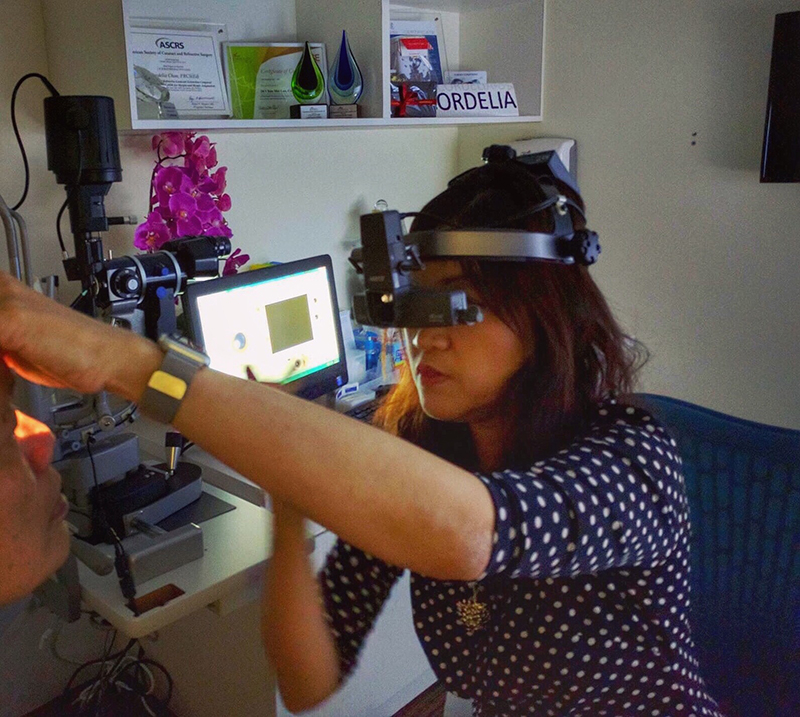Eye Floaters and Flashes in Singapore
What are Eye Floaters?
Floaters are small specks, clouds, lines, circles, “cobwebs” moving in your field of vision. They are more obvious when you look at a plain, white background, a blank wall or a clear blue sky.
Floaters are tiny clumps of cells in the gel-like substance of the eye called the vitreous humor. Vitreous fills the cavity at the back of the eye, just in front of the retina.
Although you see floaters appearing in front of your eye, they are actually floating in the vitreous cavity inside the eye. What you are seeing are the shadows that these dots and lines cast on the retina, the light-sensitive film or layer at the back of the eye.
What causes floaters?
With increasing age, the vitreous gel starts to shrink or undergo degeneration, and within it, clumps or strands form. The gel pulls away from the back of the eyewall, causing a posterior vitreous detachment, which is a common cause of floaters.
Floaters are more commonly seen in the following groups of people:
Short-sighted or myopic individuals
Those who have undergone cataract surgery or other forms of intraocular surgery
Those who have a history of inflammation inside the eye
Early detection and treatment of eye conditions are key to the optimal preservation of sight.
Schedule an assessment should you experience any eye discomfort or vision problems.
Are floaters serious?
Floaters caused by vitreous degeneration are not serious.
If the shrinking vitreous gel pulls the retina away from the wall of the eye, the retina may tear, and bleeding in the eye may occur. A retinal tear or hole usually requires laser treatment to prevent it from leading to a retinal detachment which requires urgent surgical attention.
What should I do if I see floaters?
Floaters can be an alarming symptom, especially if they occur suddenly. Although not all floaters are serious, you should contact your eye doctor fairly urgently, especially if the floaters are many, increasing in number rapidly, associated with flashes (see below), and are accompanied by a blurring of vision.
What causes flashes or flashing lights and what should I do?
When the vitreous gel pulls on the retina, a sensation of flashing lights or seeing lightning streaks occurs. These flashes usually appear on and off for several weeks or months. They are commonly associated with floaters. The medical term for this is “photopsia”.
As the retina may be torn from the sudden pull and result in a retinal detachment, it is best to seek your eye doctor for an urgent examination.
What happens at an eye check for floaters?
When your eye doctor examines your eyes, eye drops to dilate (enlarge) your pupils will first be instilled. This pupil dilation is necessary for the doctor to have a good, all-around view of the vitreous cavity and retina inside your eye. The examination is painless.

Dr Cordelia Chan performing binocular indirect ophthalmoscopy to check the retina in a patient with floaters.
What is the treatment for floaters?
Floaters caused by vitreous degeneration require no treatment. They will fade or become less obvious with time.
Floaters caused by a tear in the retina require urgent laser treatment. Those associated with a retinal detachment require vitreoretinal surgery.
